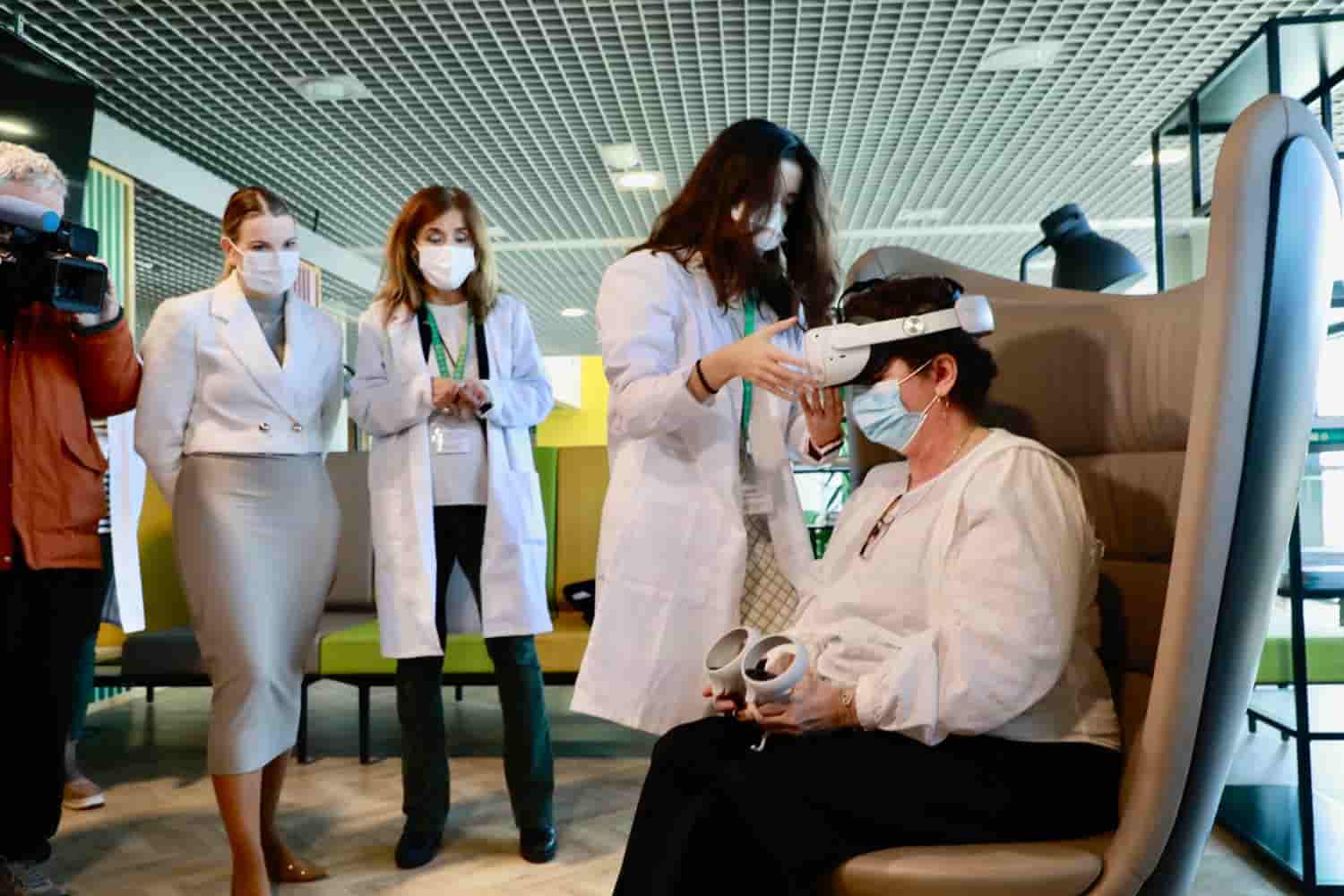The glasses are a new service of the Spanish Association Against Cancer.
TDB te mantiene informado. Síguenos en Facebook , Twitter e Instagram
Son Espases
The Son Espases University Hospital has made two virtual reality glasses available to patients at the Oncology Day Hospital to make their stay more pleasant during the time they receive chemotherapy treatment. This initiative has been made possible thanks to the collaboration agreement with the Balearic Islands Board of the Spanish Association Against Cancer (AECC), which has donated two pairs of glasses. At the moment they are available in the Oncology Day Hospital, but it is expected that later they can be used in other areas of the Hospital with oncology patients.
This action is part of the Humanization Plan of Son Espases with the aim of promoting the emotional well-being of patients requiring cancer care and their families and caregivers.
The President of the Government of the Balearic Islands, Marga Prohens, has visited today the patients of the Day Hospital and has been able to see how these virtual reality glasses work and the benefits they bring. She was accompanied on the visit by the president of the Balearic Board of the AECC, José Reyes; the Minister of Health, Manuela García; the general director of the Health Service, Javier Ureña, and the manager of Son Espases, Cristina Granados.
AECC volunteers Elena Martin and Sofia Nebot have explained how the virtual reality glasses work, through which half-hour videos are projected on different topics (marine, etc.) in order to promote a state of relaxation to patients to help them to make the treatment time as comfortable as possible. Thanks to this technology, Son Espases helps to make the time these patients spend in the hospital more pleasant, which reduces the perception of distress, pain and the passing of time during chemotherapy sessions or while waiting for treatment.
Marga Prohens thanked the initiative and, for his part, José Reyes highlighted the importance of this project, which “has the main objective of reducing the impact of the disease and improving adaptation to it through new technologies” and stressed that the use of virtual reality glasses improves anxiety symptoms, the patient’s subjective perception and physiological markers and makes patients feel that time passes more quickly.
The AECC hopes to be able to offer this service to all the hospitals in the Balearic Islands because, according to José Reyes, the association is present in all the centers with its team of volunteers. He took the opportunity to thank them for the enormous work they carry out and the commitment they show, which make it possible to offer this improvement and others.
The Health Service and the AECC have a long history of working together: within this framework, they have recently signed a three-year collaboration agreement whereby the AECC provides the Hospital Universitario Son Espases with a psychologist specialized in oncology for a minimum of three days a week to attend to admitted cancer patients and their families.
Both the psychological care service and the volunteer service aim to improve the quality of life of cancer patients and their families by reducing the emotional, relational and social alterations that may arise as a result of the disease. Given that this type of patient requires constant care, in many cases of long duration, the psychological impact that this situation generates for the family and the physical deterioration of the patient cause social problems, aggravate those already suffered and produce imbalances in family coexistence.
